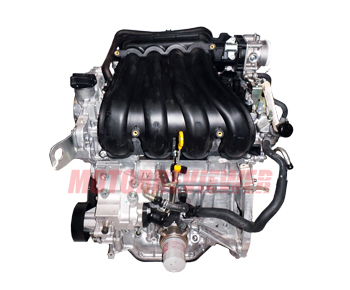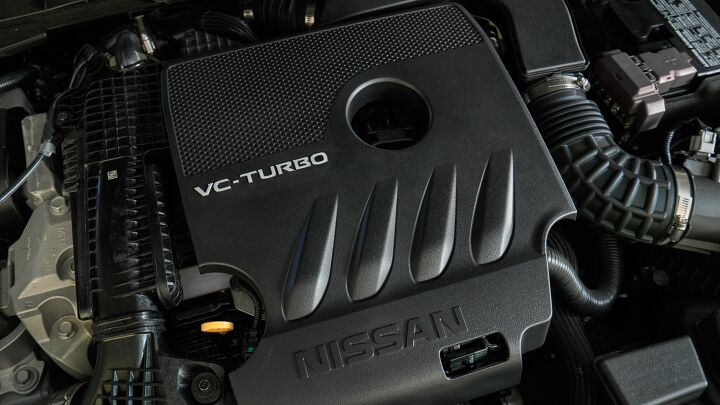Nissan vehicles can face various engine problems, including oil consumption, timing chain issues, and overheating. Regular maintenance and timely repairs can help mitigate these issues.
Nissan has built a reputation for reliability and performance, yet some owners report engine problems that can compromise their driving experience. Common issues include excessive oil consumption, which may lead to engine damage if not addressed promptly. Timing chain failures can also occur, resulting in costly repairs and potential engine failure.
Overheating, caused by coolant leaks or thermostat malfunctions, is another concern that drivers should monitor. Understanding these potential engine problems can help Nissan owners take proactive steps to maintain their vehicles and ensure longevity. Regular check-ups and attention to warning signs are essential for preserving engine health.
Introduction To Nissan Engine Concerns
Nissan cars are popular for their reliability. Yet, some owners face engine issues. Understanding these problems helps maintain your vehicle. Early detection can save time and money.
Common Complaints
Many Nissan owners report similar engine problems. Here are the most frequent issues:
- Oil consumption: Excessive oil use can lead to engine damage.
- Engine noise: Unusual sounds may indicate serious issues.
- Overheating: This can result from coolant leaks or thermostat failures.
- Check engine light: A warning sign that requires immediate attention.
Addressing these issues quickly can prevent bigger problems.
Importance Of Early Detection
Identifying engine problems early is crucial. It helps avoid costly repairs later. Here are some benefits of early detection:
- Cost savings: Fixing small issues is cheaper than major repairs.
- Safety: A well-functioning engine keeps you safe on the road.
- Longevity: Regular maintenance increases the lifespan of your vehicle.
Stay vigilant and monitor your Nissan for any signs of trouble.

Credit: www.motorreviewer.com
Types Of Nissan Engines Affected
Nissan vehicles have faced various engine problems. Understanding which engines are affected helps car owners. This section outlines affected models and year-specific issues.
Overview Of Affected Models
Several Nissan models experience engine problems. Here’s a list of common affected models:
- Nissan Altima
- Nissan Maxima
- Nissan Rogue
- Nissan Sentra
- Nissan Frontier
Each model has unique issues. Knowing these helps you stay informed.
Year-specific Issues
Engine problems can vary by year. Here are some specific issues by year:
| Model Year | Engine Problem |
|---|---|
| 2007-2012 | Excessive oil consumption |
| 2013-2016 | CVT transmission failure |
| 2015-2019 | Timing chain issues |
| 2018-2020 | Fuel system problems |
Check your vehicle’s year for potential issues. Regular maintenance helps reduce risks.
Symptoms Of Engine Problems
Recognizing the symptoms of engine problems can save you time and money. Early detection helps prevent further damage. Pay attention to your vehicle’s behavior.
Warning Signs
Watch for these common warning signs:
- Check Engine Light: A lit warning light on your dashboard.
- Unusual Noises: Knocking, ticking, or grinding sounds.
- Smoke: Excessive smoke from the exhaust.
- Oil Leaks: Puddles or stains under your car.
- Burning Smell: A strong odor of burning oil or fuel.
Performance Red Flags
Keep an eye out for these performance red flags:
- Loss of Power: The car struggles to accelerate.
- Engine Stalling: The engine stops unexpectedly.
- Increased Fuel Consumption: More gas is needed than usual.
- Rough Idling: The engine shakes or vibrates at a stop.
- Overheating: The temperature gauge rises above normal.
Keeping track of these symptoms can help you identify issues early. Regular maintenance checks are crucial. Address problems promptly to ensure your Nissan runs smoothly.
Root Causes Of Nissan Engine Failures
Nissan engines can face various issues. Understanding the root causes can help owners prevent problems. Two main factors often contribute to engine failures: manufacturing defects and wear and tear over time.
Manufacturing Defects
Some Nissan engines have faced problems due to manufacturing defects. These defects can lead to serious engine issues early in the vehicle’s life. Common manufacturing defects include:
- Poor quality control
- Defective parts
- Improper assembly
These defects can result in:
| Type of Defect | Potential Issue |
|---|---|
| Poor quality control | Engine misfires |
| Defective parts | Oil leaks |
| Improper assembly | Overheating |
Wear And Tear Over Time
Engines naturally wear down as they age. This wear and tear can lead to failures. Key factors that contribute to wear include:
- Regular driving conditions
- Maintenance habits
- Engine design
Signs of wear and tear may include:
- Decreased performance
- Increased oil consumption
- Strange noises
Regular maintenance can help reduce wear. Check engine fluids and replace filters. Address any small issues before they become big problems.
Case Studies: Real-life Engine Failures
Engine problems can strike unexpectedly. Nissan owners often share stories of engine failures. These case studies highlight common issues and their effects.
Personal Experiences
Many Nissan owners report serious engine troubles. Here are a few real-life experiences:
- John’s 2010 Nissan Altima: Engine started making strange noises. It failed completely after 80,000 miles.
- Sarah’s 2013 Nissan Rogue: The engine light flashed on. A complete engine replacement was needed.
- Mike’s 2015 Nissan Sentra: Severe oil consumption led to a breakdown. The engine seized at 60,000 miles.
These stories show how engine issues can impact daily life. Owners faced costly repairs and unexpected downtime.
Analysis Of Failure Points
Examining engine problems helps identify failure points. Common issues include:
| Failure Point | Description | Common Symptoms |
|---|---|---|
| Oil Consumption | Engines consume too much oil. | Low oil level, engine noise. |
| Overheating | Engine temperature rises dangerously. | Steam, warning lights. |
| Timing Chain Failure | Timing chain breaks or stretches. | Rough idling, engine misfires. |
Understanding these failure points helps prevent problems. Regular maintenance can extend engine life.
Stay informed about Nissan engine issues. Share your experiences and learn from others.

Credit: m.youtube.com
Solutions And Fixes
Nissan engine problems can be daunting. Fortunately, there are various solutions available. From simple DIY fixes to professional repairs, you have options. Understanding these can save time and money.
Diy Remedies
Many Nissan engine issues can be addressed at home. Here are some common DIY fixes:
- Check Engine Oil: Regularly inspect oil levels. Low oil can cause serious damage.
- Replace Air Filter: A clogged air filter reduces engine performance. Change it every 15,000 miles.
- Inspect Spark Plugs: Worn spark plugs can affect ignition. Replace them if they look damaged.
- Clean Fuel Injectors: Dirty injectors can cause poor engine performance. Use a fuel injector cleaner.
- Examine Battery Connections: Loose or corroded battery terminals can affect starting. Clean them regularly.
These steps can improve engine performance. Always refer to your owner’s manual for specifics.
Professional Repair Options
Some issues require expert help. Here are common professional repair options:
| Problem | Repair Type | Estimated Cost |
|---|---|---|
| Engine Overheating | Thermostat Replacement | $150 – $300 |
| Oil Leak | Gasket Replacement | $200 – $600 |
| Check Engine Light On | Diagnostic Test | $100 – $150 |
| Rough Idle | Fuel System Cleaning | $100 – $300 |
| Engine Misfire | Ignition Coil Replacement | $150 – $400 |
Choose a reputable mechanic for repairs. Always get a detailed estimate before starting work.
Preventative Measures
Preventing Nissan engine problems is crucial for vehicle longevity. Regular care can save time and money. Here are effective strategies to keep your engine healthy.
Routine Maintenance Tips
Routine maintenance is vital for engine performance. Follow these tips:
- Oil Changes: Change oil every 5,000 miles or as recommended.
- Filter Replacements: Replace air and fuel filters regularly.
- Coolant Checks: Ensure coolant levels are adequate and clean.
- Timing Belt: Replace timing belt every 60,000 to 100,000 miles.
- Battery Care: Inspect battery and clean terminals regularly.
Establish a maintenance schedule. Regular checks help catch problems early.
Early Warning System Installation
Installing an early warning system can detect issues early. This system monitors vital engine parameters. It alerts you before small problems become major failures.
Consider these features:
| Feature | Benefit |
|---|---|
| Temperature Sensors | Detect overheating quickly. |
| Oil Pressure Monitors | Alert for low oil pressure. |
| Battery Voltage Alerts | Prevent battery failure. |
| Engine Diagnostic Tools | Identify issues before they escalate. |
Investing in such systems can extend engine life. Keep your Nissan running smoothly with these preventative measures.
Navigating Warranty And Recalls
Nissan owners often face engine problems. Understanding warranties and recalls helps. These tools protect you. They ensure you receive necessary repairs. Knowing your rights is key.
Understanding Your Rights
As a Nissan owner, you have specific rights regarding engine issues. Here’s what you should know:
- Manufacturer’s Warranty: Covers defects and repairs.
- Extended Warranty: Additional coverage for older vehicles.
- Recall Notices: Manufacturers must inform you about recalls.
- Consumer Rights: Laws protect you from unfair practices.
Always read your warranty details. Know what is covered and for how long. This knowledge empowers you during repairs.
Steps To Take
Follow these steps if you suspect engine problems:
- Check your warranty status.
- Contact your local Nissan dealer.
- Report the engine issue.
- Ask about recalls related to your model.
- Keep all repair documents.
Document everything. Take notes of conversations with dealers. This helps if disputes arise.
| Action | Description |
|---|---|
| Check Warranty | Look up your vehicle’s warranty details. |
| Visit Dealer | Schedule an appointment for inspection. |
| Document Issues | Write down all symptoms and problems. |
Stay informed. Understanding your rights helps you navigate issues smoothly. Get the most from your Nissan warranty.
Conclusion: Ensuring Longevity For Your Nissan Engine
Maintaining your Nissan engine is crucial for its longevity. Regular checks and proper care can prevent many common problems. Here are some essential tips to keep your engine running smoothly.
Summary Of Key Points
- Regular oil changes are vital for engine health.
- Check coolant levels often to prevent overheating.
- Replace air filters to ensure good airflow.
- Inspect belts and hoses for wear and tear.
- Use quality fuel to enhance performance.
Looking Ahead
Plan for regular maintenance to avoid major repairs. Create a schedule for oil changes, filter replacements, and inspections. This helps catch issues early, saving time and money.
| Maintenance Task | Frequency | Benefits |
|---|---|---|
| Oil Change | Every 5,000 miles | Prevents engine wear |
| Coolant Check | Every 3 months | Prevents overheating |
| Air Filter Replacement | Every 15,000 miles | Improves fuel efficiency |
| Belts and Hoses Inspection | Every 6 months | Prevents breakdowns |
Stay informed about recalls and updates for your Nissan. This knowledge helps you maintain your vehicle’s value. Consider joining online forums or local clubs for advice from other owners.
By following these guidelines, you can enjoy a reliable Nissan engine for years. Simple maintenance can lead to significant benefits, including better performance and savings on repairs.

Credit: www.thetruthaboutcars.com
Frequently Asked Questions
What Are Common Nissan Engine Problems?
Common Nissan engine problems include oil leaks, overheating, and issues with the timing chain or belts.
How To Identify Nissan Engine Issues?
Look for warning lights, unusual noises, or decreased performance to identify potential engine issues in your Nissan.
What Causes Nissan Engine Overheating?
Nissan engines can overheat due to low coolant levels, faulty thermostats, or malfunctioning water pumps.
How To Fix Nissan Engine Oil Leaks?
Fixing oil leaks often involves replacing gaskets, seals, or damaged components. Regular maintenance helps prevent leaks.
What To Do If Nissan Engine Fails?
In case of engine failure, consult a certified mechanic immediately for a thorough inspection and necessary repairs.
Conclusion
Nissan engine problems can lead to significant issues if not addressed promptly. Regular maintenance and timely diagnostics are essential for optimal performance. Understanding common symptoms helps in early detection. Stay informed to keep your Nissan running smoothly. Taking proactive measures can save you time and money in the long run.
